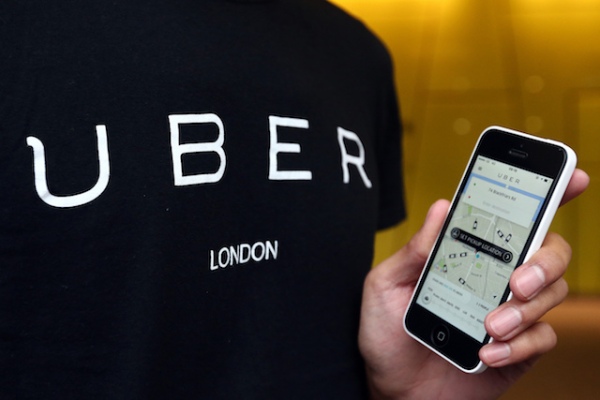A backhanded compliment for Uber snuck into UK prime minister Theresa May’s speech to the World Economy Forum in Davos this afternoon — when she said the company’s behavior had made the case for laws being strengthened to stop gig economy workers from being exploited by overly powerful tech platforms.
So, at long last, an achievement Travis Kalanick can be genuinely proud of.
“Already technology is changing the nature of our workplaces and leaving many people with less predictable working patterns, so we need to make sure that our employment law keeps pace with the way that technology is shaping modern working practices,” May told Davos delegates.
“Take the example of Uber,” she continued, just catching herself at the point of mispronouncing it ‘You-ber’. “A groundbreaking use of technology that has radically changed how people move around in cities across the world. But also a company that has got things wrong along the way — with safety issues and concerns over the protections for its workers.”
Late last year Uber lost its first appeal against a UK employment tribunal which in 2016 ruled that a group of Uber drivers were workers, rather than self-employed contractors as the company had classified them — meaning they are entitled to benefits such as holiday pay and the UK’s National Minimum Wage.
In recent years, gig economy companies have also faced increasingly awkward questions from UK parliamentarians questioning their record on working conditions and safety issues.
And just last week Uber announced a safety cap on the number of consecutive hours UK drivers can work — having been pressured by a parliamentary committee into revealing that up to 4,000 UK Uber driver had been routinely logging into its app for more than 60 hours per week.
The company’s safety record was also flagged as a concern when London’s transport regulator withdrew Uber’s license to operate in the city last September (though Uber is appealing the decision, and continues to operate there in the meanwhile).
“The answer isn’t to shut Uber down but rather to address those concerns. And to establish and enforce the standards and protections that can make this technology work for customers and employees alike,” continued May. “So employment law needs to preserve vital rights and protections. And the flexibilities that businesses and workers value.
“But we must make sure those flexibilities really do work for everyone. And don’t become a one-sided deal that can become exploitative.”
She said that balance is “at the heart” of an independent review of gig economy working conditions, which the government commissioned and which reported last summer.
Among its recommendations the Taylor review suggested individuals who work for gig economy platforms like Uber and Deliveroo be given a new classification of ‘dependent contractors’ — and that there should be a clear distinction made between that and the “legitimately self-employed”.
It also suggested platforms should be able to prove their gig economy workers can earn the minimum wage.
“We will be working to deliver on it,” said May of the Taylor report. “From exploring the case for reforms to make our employment status test clearer to identifying a set of metrics against which to measure job quality.”
Though more fulsome detail of any incoming UK employment law reforms vis-a-vis gig economy platforms remain tbc.
Throughout her Davos speech May repeated an underlying mantra of the need for tech-fueled innovations such as AI to “work for everyone”, not just the adaptable few.
“We’re absolutely determined to make our country the place to come and set up to seize the opportunities of artificial intelligence for the future. But as we seize these opportunities of technology so we also have to shape this change to ensure it works for everyone,” she said. “Be that in people’s jobs or their daily lives.”
She also focused a section of her speech on social media companies, calling for them to do more to tackle illegal content spreading on their platforms and take more social responsibility generally.
